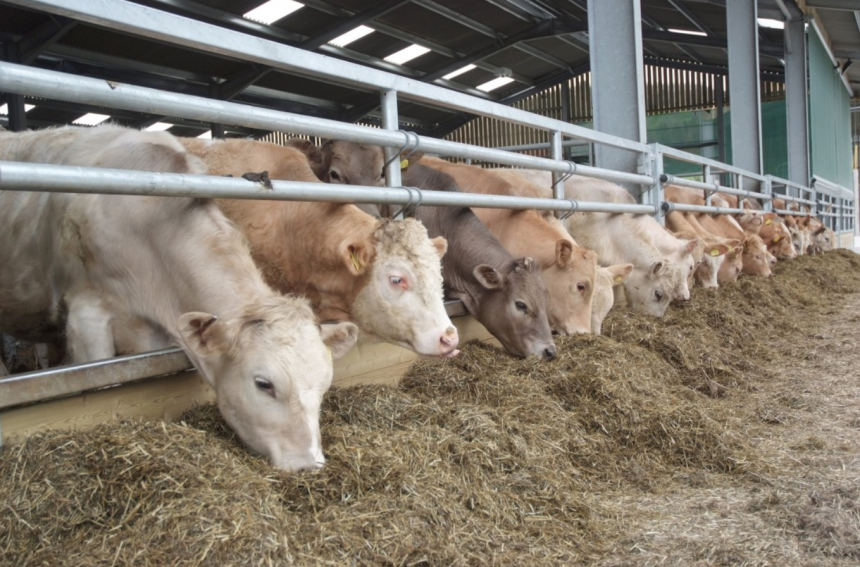It should go without saying that proper nutrition is critical for the health and productivity of livestock. From cows and pigs to chickens and goats, all livestock require a balanced diet to meet their specific nutrient requirements. In this article, we are going to take a look at the various nutritional requirements for various livestock species, the types of feedstuffs that can be used to meet these requirements, as well as the role of supplements in livestock nutrition.
Macronutrients and micronutrients
According to Natural Stockcare, livestock require a variety of macronutrients and micronutrients to achieve and maintain optimal health and production. Macronutrients, such as proteins, carbohydrates, and fats, provide energy and are necessary for the growth, repair, and maintenance of tissues. Proteins, in particular, are essential for the synthesis of enzymes, hormones, and other molecules that play key roles in the body. They are also important for building and repairing tissues, and they can be used as an energy source when carbohydrate and fat stores are depleted.
Carbohydrates and fats are also important sources of energy, and they can be stored in the body for later use. Carbohydrates, which are found in grains and other plant-based feedstuffs, are the primary source of energy for most livestock. Fats, which are found in both plant and animal-based feedstuffs, are a concentrated source of energy and can also play a role in the absorption of fat-soluble vitamins.
Micronutrients, including vitamins and minerals, are required in smaller amounts but are still essential for proper functioning of the body. For example, vitamin A is important for vision, immune function, and cell growth, while calcium and phosphorus are needed for strong bones and teeth. Iron, zinc, and other minerals are also important for various physiological processes.
Feedstuffs for livestock
There are many different types of feedstuffs that can be used to meet the nutritional needs of livestock. Natural feedstuffs, such as grasses, grains, and hay, are common sources of nutrients. Grains, such as corn and wheat, are rich in energy and can be used as a primary source of nutrients for some livestock. Forage crops, such as grasses and legumes, are an important source of nutrients for ruminants (cows, goats, sheep, etc.) and can be fed fresh or conserved as hay or silage.
Hay is a common feedstuff for ruminants and is made by drying and preserving grasses or legumes. It can be fed to livestock when fresh forage is not available, such as during the winter months or in drought conditions. Silage is another type of conserved forage that is made by fermenting the grass or legume. It is often fed to ruminants, but it can also be fed to other livestock, such as pigs.
By-products from the food and agricultural industries, such as distillers grains and bakery waste, can also be used as feedstuffs. These by-products are often less expensive than traditional feedstuffs and can provide valuable nutrients. Alternative feedstuffs, such as algae or insects, are being explored as potential sources of nutrients for livestock.
The Role of Supplements in Livestock Nutrition
Supplements are substances that are added to the diet to improve the nutritional balance of the feed. They can be in the form of minerals, vitamins, amino acids, or other nutrients. Supplements can be useful in cases where the natural feedstuffs do not provide sufficient nutrients, or when the animal has a higher nutrient requirement due to factors such as lactation or high production.
Livestock supplements are an important part of ensuring that animals receive the necessary nutrients to maintain their health and productivity. They can be used to correct deficiencies in the diet, provide additional energy, or enhance the performance of animals.
One common use of supplements in livestock nutrition is to correct nutrient deficiencies in the diet. For example, if a cow’s diet is lacking in copper, a copper supplement can be given to prevent copper deficiency and the associated health problems. Similarly, if a pig’s diet is low in zinc, a zinc supplement can be provided to prevent zinc deficiency.
Another use of supplements in livestock nutrition is to provide additional energy. This is especially important for animals that are pregnant or lactating, as they have higher energy requirements than non-pregnant or non-lactating animals. Energy supplements can also be used to help animals gain weight or maintain a healthy body condition.
In addition to correcting deficiencies and providing energy, supplements can also be used to enhance the performance of animals. For example, some supplements contain additives that can improve the growth rate of young animals, or increase the milk production of lactating cows.
There are many different types of supplements available for livestock, including minerals, vitamins, amino acids, and energy sources such as grains and oilseeds. It is important to choose the right supplement for the specific needs of the animal and the situation. For example, a supplement that is formulated for young, growing animals may not be appropriate for an adult animal with different nutrient requirements.
It is also important to use supplements responsibly, as overuse can lead to imbalances in the diet and potentially harm the animal. It is advisable to consult with a veterinarian or a nutritionist to determine the appropriate use of supplements for a particular animal or herd.
In conclusion, supplements play an important role in livestock nutrition by correcting deficiencies, providing energy, and enhancing performance. However, it is important to choose and use supplements responsibly to ensure the health and well-being of the animals.















